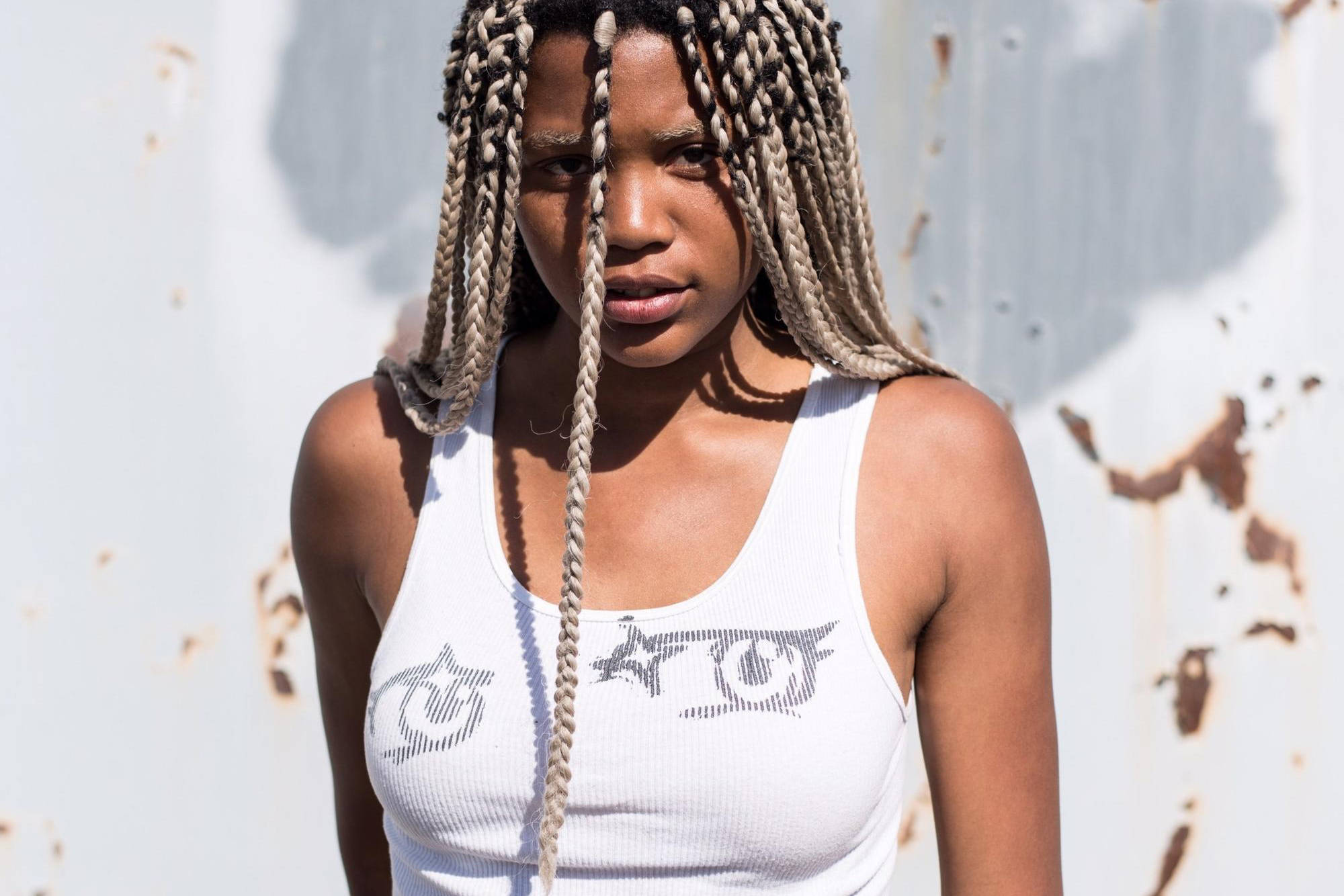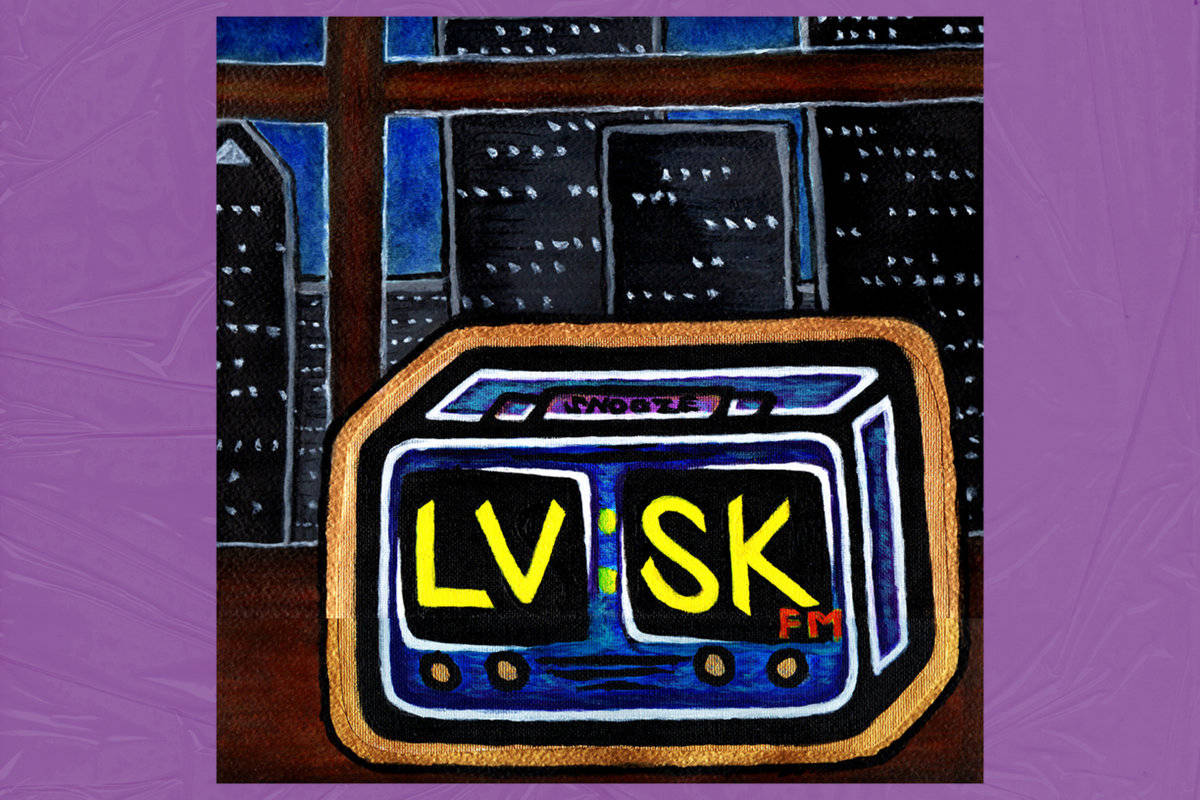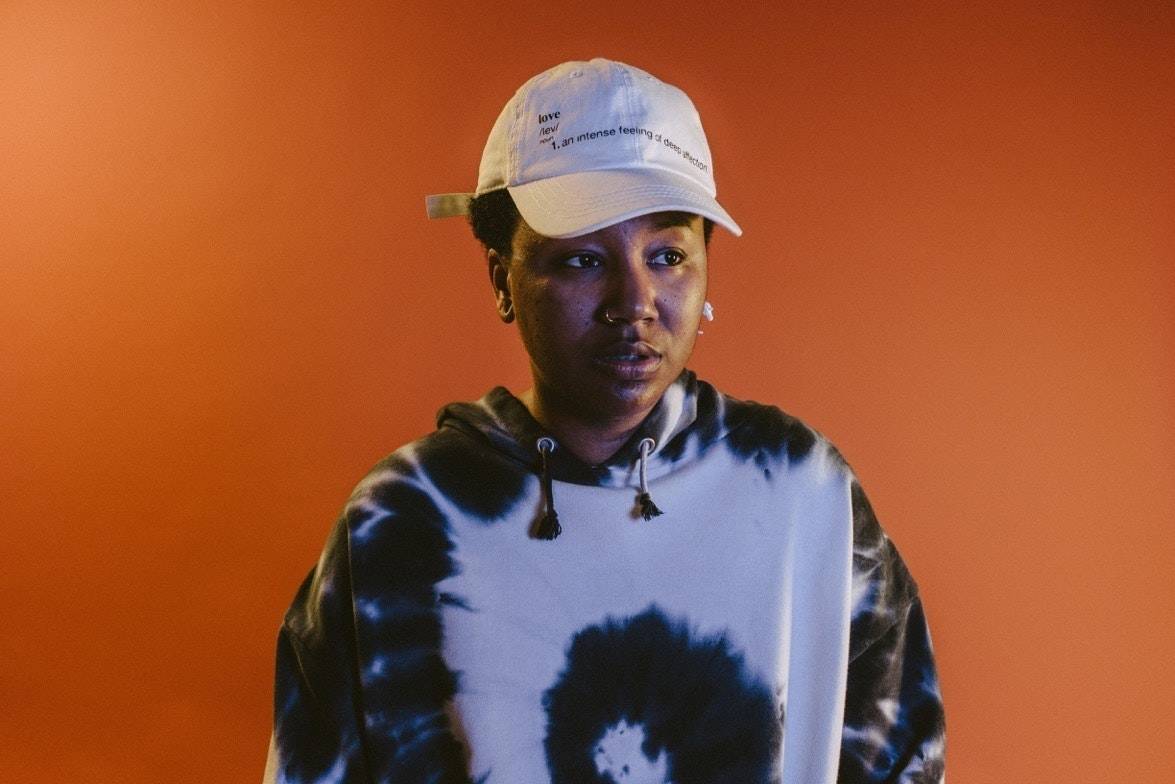Third Daughter is here and DoNormaal is back. Not that she ever left. The Seattle MC has performed somewhere around 200 shows since the 2015 release of Jump or Die. She’s following it with another big number: 19, the number of tracks on Christianne Karefa-Johnson’s long-awaited sequel, released last week, boasting appearances from 12 different producers.
“I really like to put out bodies of work,” DoNormaal says of Third Daughter’s extensive track listing. “There’s something that makes me feel insecure about putting out singles. I just like what a project means. I like when songs have other songs to contextualize them.” In the era of SoundCloud and instant Internet gratification, many artists have turned to bite-sized EPs and singles to stockpile music on their social outlets. DoNormaal, who has done an excellent job of staying relevant these past two years (by playing every local venue you can imagine), hasn’t released much new music since Jump or Die. Her gap between releases primed fans for Third Daughter and made these 19 tracks much easier to digest.
The record is a trip through DoNormaal’s psyche as she reflects on her life as the third daughter in her family. “There are a lot of stories that come up,” she says, “stories about myself as a child, stories about my family, stories about feeling isolation and rejection, and anxiety and depression. So it kind of weaves in through the various emotional stages that I have been going through in the past year and a half. I think a lot about my past and my history and where I came from, and that contextualizes everything that I do. That’s why I call it Third Daughter.”
The ability to reflect and pour vulnerabilities into tracks is a hallmark of DoNormaal and her partner, fellow 69/50 collective co-founder Raven Mathews. While many up-and-coming artists struggle to find identities, DoNormaal and Mathews have exhibited an uncanny ability to craft self-portraits in their music—putting pain and personal insufficiencies, as well as triumphs, on display. “Me and Raven are very similar in this way,” DoNormaal tells me. “We are very sensitive people. Since we were children we were sensitive, and spent a lot of time in our inner worlds and our inner heads getting to know ourselves. Both of us have been through not really being able to survive in the typical mainstream world because of that deep connection to our inner worlds.” DoNormaal takes fans into this world on “My Little Pony,” which flips the name of a childhood cartoon to reveal internal conflict from her youth. “I kept the fire burning ’til it’s burning down the wick/Just like a girl just like a boy because it’s hard for me to pick,” she rhymes.
In “Ego Slave,” produced by Luna God (who is becoming one of Seattle’s most celebrated producers), she reflects on her ego, rapping, “My skin is looking black/My ego bright bright blue/Notice since a child something in my heart/Something the world tried to push down too far/Now I got it I’ll never let it go.” The song addresses not only the ego she possesses, but the ego she believes is important for all marginalized people to claim. “As a black woman, I have peeped since I was little that it really helps people take advantage of me if I don’t have an ego,” she says. “It helps people manipulate and exploit me and make me feel bad about myself if I don’t have a good sense that I am good, worthy, strong, special, and talented, and willing to say that to people. These days, every capitalist structure, every system, every job, every employer is benefiting wildly on the fact that our society has taught us to have very low self-esteem and showing us all the time reasons why we are not worthy and good.” The song promotes self-esteem in a chorus telling everyone to take a step forward as she takes a solo step backwards.
While many tracks on Third Daughter carry heavy meanings like these, the deep narratives are not the only goal DoNormaal had in mind for this project. “It’s just as much a sonic album as it is about the third daughter and all those emotional things in the lyrics,” she says. “I think that people can really just enjoy the way it sounds without having to understand everything.”
She’s right. I have to admit that the first couple of listens to “Gold Rooster,” I had no idea what she was saying. But the song sounded so damn good I had to repeat it. I was hypnotized by the slowly building intro before being bombarded by a head-rocking bass line. The synths started waving and I was in a trance—the effect is like audio dope. (It’s produced by Thraxxhouse favorite Fish Narc.) It hits so hard that it’s a little difficult to catch the lyrics. After a closer listen, it becomes clear she is talking about her parents, her ancestry, and the things that make her unique. She is the Gold Rooster.
Even if you too don’t catch 100 percent of the words on first listen, the biggest takeaway from Third Daughter is DoNormaal’s emotional intelligence. “Okie Doke,” “Buckle,” and “Revenge” provide insight into emotions, political views, and personal thoughts—an indelible imprint on record of one human’s self-image. Her relationships with amazing producers is a bonus. Tracks like the Mario Casalini-produced “Magic DoNormaal”—in which she boasts “You don’t know me but I’m that bitch” over a monstrous instrumental—make this album one that will stay on repeat, despite its massive tracklist. Sonically, the project’s amazing instrumentals range from the slow-burning trap-soul ballads by Brakebill to Wolftone’s ’90s-R&B-laced “Don’t Make Me” to the creepy trap-horror of Fish Narc’s “Take a Walk.”
Jump or Die became a cult classic in Seattle, and following it was always going to be a daunting task. It showcased DoNormaal’s skill as a poet and rhymer, but Third Daughter takes it further, showcasing her ability to write melodies and bridges and flex her vocal range to encompass more sounds. It’s a full-bodied record that not only puts forth her life story, it provides DoNormaal with enough material for another 200 shows.
music@seattleweekly.com








